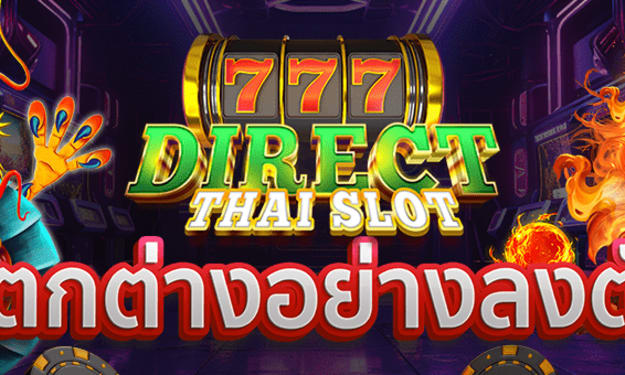Why I'm not looking forward to Horizon Forbidden West
It doesn't just have an anti-native problem--it also has a problem with sexist, predatory behavior.

Due to the nature of this post, all profits will go to Native causes.
When I started playing Horizon: Zero Dawn, it was a welcome escape. The Texas blackout left me reeling, and all I knew about it was that the player character is a young woman who uses a bow and arrow, and that she knew about the curvature of the earth due to the setting of the sun in spite of her old-timey setting.
The game calls this "primitive."
That was my first hint that this game has a problem with general anti-native sentiment--and no one told me.
That's one of my reasons for writing this: I prefer to be informed about the content I consume, and I think that everyone deserves a warning about things that might upset them. It's a common courtesy--similar to content ratings on tv--that lets the viewer know what they're signing up for.
As the game progressed, I became more concerned. The game is viewed as progressive due to elements such as the matriarchal society that the protagonist hails from--the same society that cast her out simply for being born different.
This is a problem. It's a problem because it reflects the way that many people view the world, and this affects the people still living in it. A lot of people act as though native tribes no longer exist, which doesn't do the survivors of multiple genocides any favors.
I'm an outside observer and many natives no longer wish to share their cultural customs with people like me due to widespread trauma and abuse, but I've done my best to follow people from different tribes and listen to what they have to say. From what I've gathered, your tribe is basically your extended family and your church rolled into one.
That's a simplification. Tribes are not churches. It's just a quick way to convey the way that spirituality is a part of their cultures.
I don't have an idealized view of tribes, by any means. They're people, and they have their own issues. I'm not going to mention any here, because it's not my business and that's not the point.
The point is that this game series draws very heavily from tribal customs. They explained it away by saying that they drew from more than one culture, and that this is a fictional universe, so the tribes aren't real, so there's no problem here, right?
Except people draw inspiration from fiction all the time. People cite fictional sources as their motivation for doing things all the time. It affects society because it exists in society: it is impossible to exist in this world without doing so. When writers pretend that there is no culpability or responsibility for something they've created, simply because it is a work of fiction, they refuse to confront the consequences of their actions.
It's important to examine our subconscious biases and to recognize that our work affects people, for good or ill. Writes love to claim responsibility for the positive affects their work has on other people-- but as soon as they get negative, the script flips and it's "Just fiction."
It is just fiction: and it affects people, and it inspires people to thought and action, and it reflects how the writer views the world.
This is a contentious subject, so for the purpose of this article, we're going to focus on the (possibly subconscious) biases throughout the first game.
The tribes in this game are portrayed as ignorant. They have knowledge, yes, but they fear the technology that was already in the world, and create a superstitious religion surrounding it. They refer to automated voices and machinery as spirits. They don't investigate, and banish those who do. They don't study the machinery at all.
Enter Aloy: the one true reasonable person.
Aloy enters a forbidden zone by accident, finds a piece of technology, uses it, studies it, and just so happens to be the only person alive who is capable of unlocking a special, super secret mechanical door. Of the others in the game who can use this technology, one is a scavenger with broken tech who doesn't really know what he's doing; the other is the main antagonist; and the third is a shady mentor who--spoiler alert--unleashed the apocalypse in search of knowledge.
...yeah, that's going to be another point entirely.
Now I don't mean that the other characters in the game entirely unintelligent. I'm talking about the way the overall narrative treats them, especially in comparison to the other characters.
Aloy is the smart one who knows how to work things out, and the tribes--especially the tribal leaders-- are fearful and ignorant.
This tells me that they probably didn't speak to any living natives. They consulted history books and wrote their narrative as thought natives no longer exist. As though tribes are a work of fiction.
This might not seem like a big deal, but when you have to justify your own existence every single day, to every single newcomer, it becomes tiring. When you have trauma entertwined with this experience, it becomes a trigger that is almost constantly pressed down.
This affects our society because people make decisions based on the way they view the world. This game reinforces the view that native customs and beliefs are less than the great technological revelation. It relies on the assumption that those without a colonistic education are robbed of the opportunity to "truly" learn.
This attitude is threaded throughout the game. It's not just with regards to the technology, either: in the DLC, Aloy scoffs at another tribe's cruel customs. It reinforces her belief that she's better off on her own, that tribal leaders make bad decisions, and that tribal customs are cruel.
So we have yet another iteration of the "cruel, primitive savage" trope. You know, the one that was used as an excuse to hunt down human beings for prize money.
You'd think that's in the past, right? Except it's still creeping into our games and our literature. It's still being used to speak over and invalidate natives who are fighting to keep their cultures alive.
I wavered on whether or not I should write this. It didn't seem like my place. But I would have wanted someone to tell me, and when I try to look for native perspective on this game, I can only find articles from before the game was made.
When natives spoke up about the language used in this game--the use of terms like brave, savage (which is a slur), and tribe--they were scoffed at. Their perspectives were belittled and largely ignored. I thought I was pretty active in the gaming community and that I was following quite a few native creators, but this sentiment was somehow squashed so badly that I had no idea it existed--in spite of following people who care about these issues. People who posted about this game.
Anti-native sentiment isn't the only problem, either. Aloy starts the main part of the story with a rite of passage--meaning that, at the start of the game, she is just barely considered an adult.
Even before her rite of passage, an adult man hits on her.
This is another theme that is repeated throughout--adult men in positions of power express interest in someone who's just barely "legal," at least by their customs.
For U.S. culture, that would be similar to a company executive hitting on someone at their 18th birthday party. It's not actually illegal, but most adults who care about informed consent will find it pretty skeevy at best.
Now I don't actually dislike these characters. I have a bad feeling about the intentions of the creators--the gaming industry is rife with sexual harassment, after all--but I like to give people the benefit of the doubt, so I'm still calling this subconscious bias.
This is something that a lot of young women have to deal with on a daily basis. Everyone handles it differently, but it makes so many people uncomfortable that I can't just look at this and go, yeah, that's fine, that's something I'm okay with. I cannot see something like this and just say nothing.
The worst example of this is when a king tries to ask her to replace his dead lover.
His dead lover, by the way, is the sister of the first man who hit on her before her rite of passage. She is said to be an accomplished warrior. We do not see her until she is dying, because she was captured by the enemy, tortured, and used as angst fodder for her brother.
Now, this is one of the many things that I brushed off, because I really enjoyed the game. The environment is beautiful, the world is intriguing, the lore is well-written and plentiful, and the gameplay is very engaging.
The thing is, this is an example of fridging. It's a narrative device that's been used for years. And I've seen people refer to this game as "progressive" and "feminist."
The DLC tied all of this into a nasty little bow, for me. Until that point, I would have said, it has its issues but I really enjoyed it. Afterwards, I just felt sick to my stomach.
They added a shaman character. They directly pulled from native traditions in this. They didn't have to call her a shaman. They could have come up with their own word. They took traditions and beliefs that are supposed to provide wisdom and guidance for the tribe, and they invalidated them almost entirely.
It's the lack of respect that's galling. You can tell when someone treats the source material with respect. This did not. And from what I've read, the writers seem convinced that they did.
This shaman character was a woman. She was strong.
She was killed off. Another log in the angst fuel fire.
Can you guess who survived her?
That's right: her brother. Who now uses her death as angst fuel.
The DLC just tripled down on everything that bothered me in the main game, including the belittling of the native's intelligence.
See, the shaman had a relationship with the AI in an old building. Aloy comes along, and boom! the AI has a colleague.
Not the shaman. Not the woman who spent years conversing, trying to understand, trying to fix things. The young lady who showed up that day. That's the colleague.
I haven't even touched on the colorism yet.
Aloy is fair-skinned. There's a nice variety of skin colors in the game, so I think they did try to avoid racism, but I think some colorism slipped in based on the way the narrative treats some of the characters.
Aloy's mentor is a black man. He's only helping her because he has an ulterior motive. On top of that, the DLC reveals that he (probably) embedded himself in the role of a shaman, learned their ways, gained entrance into their secret, sacred meeting place--and then stole everything of value and set a few bombs before disappearing entirely.
When they tried to investigate, the tribe that he said he was a part of was nowhere to be found.
There are many antagonists in this game, but he's the only one with this amount of shrewd cunning.
There are three other black characters that play major roles in the game. Of those three, one of them has the darkest skin.
She is also from the evil splinter group responsible for widespread blood sacrifices.
I'm not going to speak on this more because I'm not comfortable doing so. I've learned about colorism from black people, and I'm still learning about it.
That's why I think it's important to examine our biases, and look at the roles we force black characters to take in our narratives.
The last character in question was not an antagonist, but we need to examine why the character with the darkest skin was also the character the protagonist interacts with the most when she visits the evil cult.
I'm going to give them the benefit of the doubt--they didn't consider this as a factor when they created the characters. They didn't mean anything by it.
The thing is, these things still affect our view of others, even if only subconsciously. And I've already given this game the benefit of a lot of doubt.
About the Creator
Ruza Aldin
I don't know me. Let's find out.






Comments
There are no comments for this story
Be the first to respond and start the conversation.